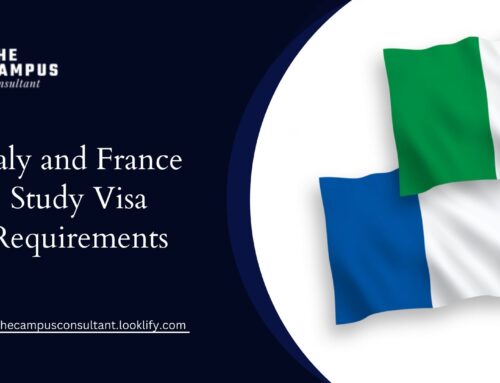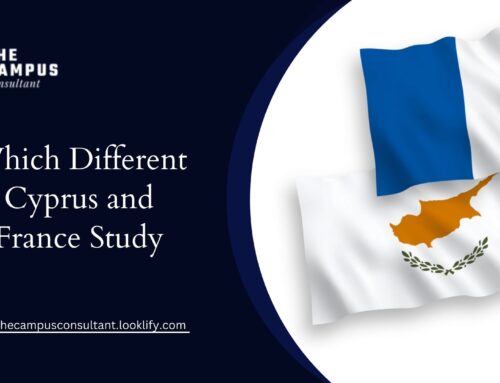Introduction
Embarking on a journey for higher education in France is an exciting venture for international students. However, the transition comes with its unique set of challenges, with transportation being a key aspect. In this comprehensive guide, we delve into the intricacies of transportation in France, providing international students with invaluable insights to navigate this aspect seamlessly. Navigating the transportation landscape in a foreign country can be daunting, especially for international students arriving in France. A comprehensive understanding of the transport system is crucial for a smooth academic journey. In this guide, we delve into the intricacies of transportation in France, offering insights, tips, and valuable information to empower international students. From efficient public transport networks to cultural nuances impacting commuting, this article aims to be a go-to resource for students seeking seamless travel experiences in France.
Public Transportation Networks
Navigating the Paris Metro
The Paris Metro stands as an iconic symbol of the city’s efficient public transportation system. For international students, understanding the metro lines and stations is crucial. The well-connected network spans the entire city, making it an ideal mode of transportation to reach universities, cultural hubs, and essential services. Paris boasts an extensive Metro network comprising 16 lines, each color-coded for easy identification. From Line 1 connecting the historic Louvre to Line 14 whisking you to the contemporary Bibliothèque François Mitterrand, understanding the primary routes is fundamental. Familiarizing yourself with the metro map, available at stations and online, is the first step towards mastering this labyrinth.
Regional Trains: Connecting Beyond Paris
France boasts an extensive regional train network that extends far beyond the borders of Paris. These trains connect major cities and picturesque towns, offering international students the opportunity to explore the diverse landscapes of the country. The TGV (Train à Grande Vitesse), known for its high-speed services, is a reliable option for quick and comfortable travel between cities. France boasts a robust regional train network that extends far beyond the capital. From the sun-kissed vineyards of Bordeaux to the historic charm of Strasbourg, regional trains provide a gateway to diverse experiences. The extensive network connects students to smaller cities and rural areas, allowing for a deeper exploration of France’s cultural and natural wonders.
Affordable Transportation Options
Student Discounts on Public Transport
Recognizing the financial constraints that students often face, France provides various student discounts on public transportation. With a valid student ID, individuals can enjoy reduced fares on buses, trams, and trains, making it economically feasible for international students to explore the richness of French culture beyond their academic commitments. At the forefront of student discounts on public transport in France is the Carte Imagine’R. Specifically designed for students under the age of 26, this card provides substantial reductions on various modes of transportation, including buses, trams, and metro services. With a nominal annual fee, the Carte Imagine’R is a savvy investment that unlocks unparalleled savings throughout the academic year.
Biking: Embracing Sustainable Mobility
For the environmentally conscious student, France encourages the use of bicycles. Many cities, including Paris, offer extensive bike-sharing programs. Navigating the city on a bike not only contributes to sustainability but also allows students to experience the charm of French streets at a leisurely pace. At the forefront of sustainable biking in France is the renowned Vélib’ bike-share program, a pioneer in urban mobility. Operating in major cities like Paris, Lyon, and Marseille, Vélib’ offers an extensive network of bikes available for short-term rentals. International students can conveniently access these bikes at designated stations, fostering a sense of freedom and flexibility in their exploration of the city.
Accommodation Proximity and Transportation Hubs
Choosing Student Housing Strategically
One of the key considerations for international students is selecting accommodation in close proximity to transportation hubs. Opting for housing near metro stations or bus stops ensures convenient daily commutes to university campuses and other essential destinations. Opting for university-provided accommodation offers international students unparalleled proximity to academic facilities. The convenience of residing on or near campus fosters a seamless integration into academic life. University halls and residences often create a vibrant community, facilitating social interactions and a supportive environment for students navigating the challenges of studying abroad.
Accessible Airports: Connecting Globally
France is renowned for its well-connected airports, facilitating seamless international travel. For international students, having access to major airports like Charles de Gaulle Airport opens up possibilities for convenient travel back home during breaks and holidays. Accessible airports prioritize modern amenities and infrastructure to enhance the travel experience for international students. Major airports in France, including Charles de Gaulle Airport in Paris and Nice Côte d’Azur Airport, boast state-of-the-art facilities. These include spacious terminals, advanced security measures, and an array of services catering to the diverse needs of travelers.
Cultural Integration Through Transportation
Local Etiquette and Norms
Understanding the local transportation etiquette is integral to cultural integration. In France, maintaining a sense of decorum on public transport is highly valued. Observing norms such as giving up seats to the elderly or pregnant passengers fosters a positive communal atmosphere . French culture places a significant emphasis on polite greetings and social niceties. When meeting someone for the first time, a customary handshake and maintaining direct eye contact convey respect. Addressing individuals with their titles, such as “Monsieur” or “Madame,” is considered polite. Social kisses, known as “la bise,” are a common form of greeting, typically involving cheek-to-cheek air kisses.
Language Proficiency for Navigating Transportation
While major transportation hubs often have English signage, cultivating basic French language proficiency enhances the overall experience for international students. Knowing common phrases and terms related to transportation ensures smooth communication and interaction with locals. A fundamental aspect of language proficiency for transportation is the mastery of relevant terminology. Understanding essential phrases related to public transport, directions, and ticketing is crucial. Familiarity with terms like “station,” “platform,” “ticket counter,” and “timetable” empowers international students to communicate effectively and navigate transportation hubs with confidence.
Summary
In summary, mastering transportation in France is a key component of a successful international student experience. From navigating the efficient Paris Metro to embracing sustainable options like biking, students have a plethora of choices to explore the beauty and richness of the country. By strategically choosing accommodation near transportation hubs, taking advantage of student discounts, and respecting local norms, international students can unlock a seamless and enriching journey throughout their academic pursuit in France.







Leave A Comment